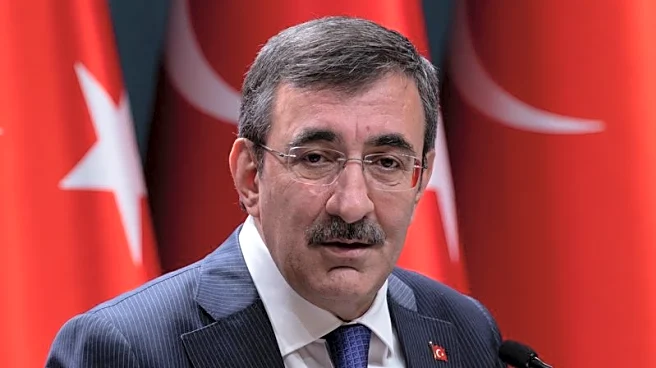What's Happening?
La Liga players are staging protests by delaying the start of their matches in Spain this weekend. The protest is in response to the decision to relocate a December 20 match between Barcelona and Villarreal
to the United States. The Spanish Footballers' Association (AFE) has expressed dissatisfaction with La Liga's lack of transparency and dialogue regarding the move. Players from Girona and other teams have symbolically paused their matches for 15 seconds to demonstrate their opposition. The match, set to be held at Miami's Hard Rock Stadium, marks the first official La Liga match to be played outside Spain. La Liga president Javier Tebas has described the initiative as a historic moment aimed at connecting with fans in North America and reinforcing Spain's leadership in global soccer.
Why It's Important?
The relocation of the Barcelona-Villarreal match to the United States signifies a significant shift in how European soccer leagues engage with international audiences. This move could potentially open new revenue streams and expand fan bases in North America, a region with growing interest in soccer. However, the protest by players highlights concerns over decision-making processes within La Liga, emphasizing the need for greater transparency and dialogue with key stakeholders. The situation underscores the tension between commercial interests and the traditional values of the sport, which could influence future decisions regarding international matches.
What's Next?
Pre-sale tickets for the match will be available starting October 21, with general sales commencing on October 22. The protest by players may prompt further discussions between La Liga and the Spanish Footballers' Association to address concerns and establish a more collaborative approach to international match planning. Stakeholders, including clubs and fans, will likely monitor the situation closely to see if it leads to changes in how such decisions are made in the future.
Beyond the Headlines
The decision to move a La Liga match to the United States raises questions about the globalization of soccer and its impact on local traditions and fan engagement. It reflects broader trends in sports where leagues are increasingly looking to international markets for growth. This development could lead to more matches being played abroad, potentially altering the landscape of European soccer and its relationship with domestic fans.











